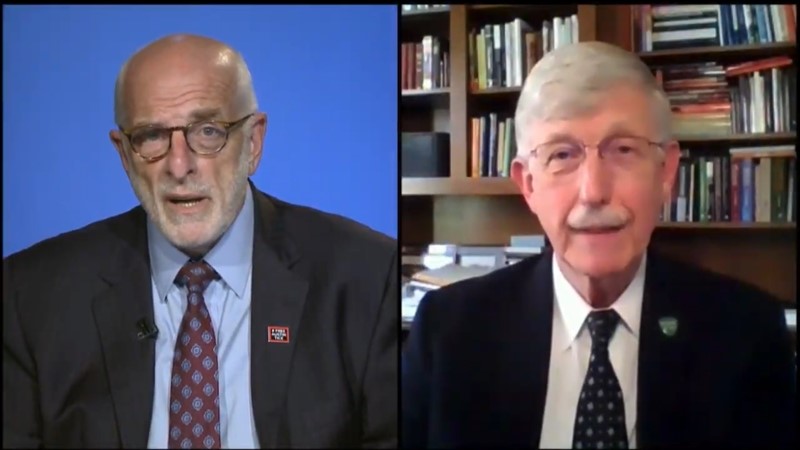Vaccination hesitation could cause pandemic to linger
National Institutes of Health (NIH) Director Dr. Francis Collins warned a virtual National Press Club audience on Oct. 23 that U.S. efforts to eradicate COVID-19 could be significantly delayed if large portions of the American public refuse an eventual vaccine.
“If only 50% of Americans are interested in taking it, we’re never going to get to that point of immunity across the population where COVID-19 goes away,” Collins said during a virtual Newsmakers event. “It could be here for years.”

Collins, who oversees the U.S. agency responsible for the bulk of the world’s biomedical research, rooted his concerns in growing distrust in science and public health.
“It’s kind of a perfect storm here of our culture being in a bit of a spasm between difficulty and divisiveness,” Collins said.
Failure to communicate
The director cited dubious information being shared over social media as a major factor for this distrust, but also lamented the scientific community’s inability to effectively relay their information.
“[Scientists] can slip back into using terminology that’s off-putting because people don’t quite understand what four-syllable word they just used and what it’s supposed to mean,” Collins said.
One notable exception, he said, would be Dr. Anthony Fauci, the Director of the National Institute of Allergy and Infectious Diseases who emerged early on in the pandemic as the country’s leading public health figure.
“We need more Tony Faucis,” Collins said. “We don’t have enough of them.”
Although Fauci has consistently been viewed as the foremost authority on COVID-19, he has nevertheless faced criticism from President Donald Trump, who described the longtime infectious disease expert and other public health officials as“idiots” during a widely reported campaign call earlier this month.
Collins did not directly address the president’s remark, but he noted Friday that it was “somewhat distressing to see how some have demonized Tony basically for telling the truth.”
Despite the communication hurdles that the NIH and other agencies will have to overcome in order to successfully introduce a vaccine, the director expressed confidence in ongoing efforts to combat the coronavirus.
Treatment fast track
Collins touted the public health infrastructure’s coordinated response, crediting it for developing new treatment methods and putting the U.S. in a position where a vaccine could be authorized for emergency use as soon as late November.
“That is light years ahead of any vaccine effort that’s ever been mounted before at that scale,” he said.
Still, for all of the strides that have been made, Collins emphasized that the public needs to do its part to clamp down on the spread of COVID-19, especially as cases spike across the country. On the day that Collins delivered his remarks, the U.S. set a one-day record of 83,000 new cases.
“In a certain way, we’re still in the first wave because we’ve never really thrown the infections down to the baseline,” Collins said. “This really does become a moment where all Americans have to recognize that each of us, individually, have a responsibility if we want to turn this around.”
According to Collins, that means taking simple steps like wearing a mask, keeping a 6 ft.distance in your interactions and avoiding congregating indoors.
“Don’t be the unwitting superspreader,” he said.
